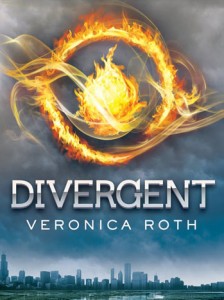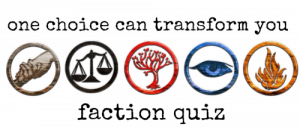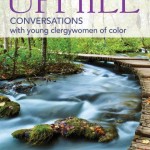 I finished reading Veronica Roth’s dystopian young adult novel Divergent in time for the film’s release later this month, at a time when it seems that those BuzzFeed and Zimbio quizzes are reaching a fevered pitch on my social media feeds: Which Downton Abbey character are you? Which state should you live in? What decade should you have lived in? Who should be your celebrity boyfriend? What should your college major have been? And just today, more than one friend reported on what pie they should be.
I finished reading Veronica Roth’s dystopian young adult novel Divergent in time for the film’s release later this month, at a time when it seems that those BuzzFeed and Zimbio quizzes are reaching a fevered pitch on my social media feeds: Which Downton Abbey character are you? Which state should you live in? What decade should you have lived in? Who should be your celebrity boyfriend? What should your college major have been? And just today, more than one friend reported on what pie they should be.
What pie are you?
The central premise of Divergent centers (a bit more seriously) around the question: What faction are you? And yes, at the end of my paperback volume, the bonus materials contain … a quiz! to tell the reader where she would belong. The five factions are organized around human characteristics like Dauntless and Erudite, and values like Amity, Candor, and Abnegation. Our young heroine, of course, doesn’t fit neatly into one of these factions, and comes to learn about herself, her family, and her world in unexpected ways that have already captured a massive audience sure to expand with the film’s release.
What does it mean to be Divergent, to not fit, or even worse, to be factionless?
What if your Zimbio quiz results were inconclusive?
How would you know which Glee character you were?! (I was, unsurprisingly, Mr. Schuster.)
I think there’s something else going on here. These are simply new musings on the oldest of human questions: Who am I? Who should I be? What will I do with my life? Dare I suggest that these are just new ways to explore classic vocational questions?
 I also find it interesting that these things emerge at a time when young people, who are the target audience for Divergent and who I imagine are the major consumers of the who/what/where-should-you-be social media quizzes, are less and less likely to identify with religious denominations. Roth herself is a millennial, born in 1988. I think that it isn’t that millennials don’t want to be part of an identifiable group. Clearly, they do. Even if it’s a group of wizards at Hogwarts. (Incidentally, I’ve always read Harry Potter and the Sorcerer’s Stone as a deeply vocational story, starting as it does with “the boy who lived” and the importance of the sorting hat.)
I also find it interesting that these things emerge at a time when young people, who are the target audience for Divergent and who I imagine are the major consumers of the who/what/where-should-you-be social media quizzes, are less and less likely to identify with religious denominations. Roth herself is a millennial, born in 1988. I think that it isn’t that millennials don’t want to be part of an identifiable group. Clearly, they do. Even if it’s a group of wizards at Hogwarts. (Incidentally, I’ve always read Harry Potter and the Sorcerer’s Stone as a deeply vocational story, starting as it does with “the boy who lived” and the importance of the sorting hat.)
Plenty of scholars have researched and written about emerging adults and their religious habits and tendencies. The Pew Forum regularly publishes studies about them and Christian Smith’s work with the National Study of Youth and Religion has been informative and influential for many of us working in higher education. It seems to me that the growing label of “spiritual but not religious” is itself an expression of religious divergence. It’s an attempt to determine a religious identity that isn’t boxed in, that isn’t predetermined, that doesn’t fit.
Maybe it’s an expression of disillusionment; perhaps it’ reflects a failure of denominations to make room for divergence itself. Plenty of others have written about the fate of denominations themselves.
Perhaps we should say that some people are just religiously divergent.
And maybe this isn’t new.
It seems to me that the history of most religious traditions is a history of change and is often shaped by those who challenge and live in between established categories. Of course, this reveals my thoroughly Protestant way of thinking of church as semper reformanda, always to be re-formed. Formed again and again and yet again in response to big and abiding questions of who we are, who we should be, and how we should live in a world that changes constantly.
I haven’t read Insurgent and Allegiant yet, so I don’t know how well Roth’s trilogy narrative arc will continue exploring these big questions about human identity.
I do know that a whole lot of people seem interested in them, and always have been. Religion has been and will continue to be one way of answering the questions, and silly social media quizzes and dystopian young adult fiction offer fresh ways of exploring and playing with them.
Some questions remain: Will denominations make room for religious divergence? Or won’t they? And, will it matter?
And what kind of pie should I be?
Images via.












